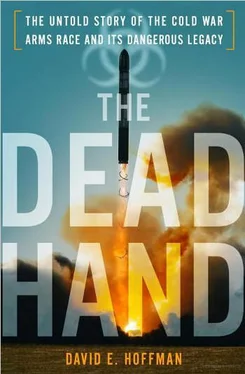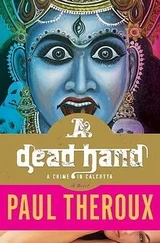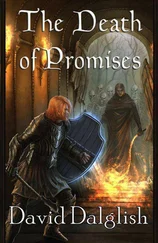On the flight back to Los Angeles, Reagan was deeply concerned. “He couldn’t believe the United States had no defense against Soviet missiles,” Anderson recalled. Reagan slowly shook his head and said, “We have spent all that money and have all that equipment, and there is nothing we can do to prevent a nuclear missile from hitting us.” At the end of the flight, Reagan reflected on the dilemma that might confront a U.S. president if faced with a nuclear attack. “The only options he would have,” Reagan said, “would be to press the button or do nothing. They’re both bad. We should have some way of defending ourselves against nuclear missiles.” 3
Reagan was a staunch anti-Communist and defense hard-liner. In the summer of 1979 he was speaking out in his syndicated radio address against the new SALT II treaty, saying it favored the Soviet Union. 4But on the threshold of a new campaign, his advisers felt there was a real chance that Reagan would frighten voters if he spoke openly about nuclear weapons and war. This risk was acknowledged in a memorandum that Anderson wrote in early August, a few weeks after Cheyenne Mountain. At this point, Reagan’s campaign had several part-time defense and foreign policy experts, but the only permanent policy adviser was Anderson, a conservative economist on leave from the Hoover Institution at Stanford University. Anderson had earlier written memos on the economy and energy. In the ten-page Policy Memorandum No. 3, “Foreign Policy and National Security,” he grappled with a way for Reagan to talk about nuclear strategy without alarming voters.
Anderson acknowledged that Reagan’s strong views on national defense were regarded as a political liability, that people worried he was somewhat inexperienced and might plunge the country into “Vietnamlike wars” abroad. But, Anderson added, “The situation has now changed significantly.” The reason was that growing Soviet military power “has been increasingly perceived as a clear and present danger to the national security of the United States.” Anderson cautioned that Reagan could not tackle this theme directly. He had to find a way to take advantage of the mood without frightening voters with an “overly aggressive stance that would be counterproductive.”
Under the heading “National Defense,” Anderson sketched out three options for the campaign. One would be to continue the course the United States was on, relying on SALT II, and “try to appease and ingratiate ourselves with the Soviets.” Anderson dismissed this as “dangerous folly.” Another option would be for Reagan to argue the United States must “match the Soviet buildup,” sharply increasingly defense spending. But this has “serious problems,” he acknowledged, because it could alienate voters. “Substantial increases in the attack missile capability of the United States would be a powerful, emotional issue to deal with politically—especially by Reagan,” he cautioned. Then Anderson offered a third way, suggesting Reagan propose development of what he called a “Protective Missile System.” Anderson acknowledged missile defenses were outlawed by the 1972 Anti-ballistic Missile Treaty, but “perhaps it is now time to reconsider the concept.” Anderson argued that missile defense would be “far more appealing to the American people” than just nuclear retaliation and revenge. 5
Despite the recommendation of Policy Memorandum No. 3, in the campaign that unfolded in the next fifteen months, Reagan did not talk about missile defense. The subject was just too delicate. A statement on the topic was put into the Republican Party platform, but it was not part of Reagan’s campaign stump speech nor did it figure in his major campaign addresses on foreign policy.
Nonetheless, Reagan held radical notions about nuclear weapons: he dreamed of abolishing them. Personally, he recoiled from the concept of mutual assured destruction, or MAD. 6Reagan also intensely disliked the idea that he, as president, would have to make decisions about nuclear weapons in the event of a sudden crisis. He worried that a nuclear explosion would lead to the end of the Earth and expressed belief in the biblical story of Armageddon. “I swear I believe Armageddon is near,” he wrote in his diary on the day Israel bombed an Iraqi nuclear reactor in 1981. 7In his desk drawer, Reagan kept a collection of 3 × 5 cards. One carried a quotation from President Eisenhower’s “Atoms for Peace” address to the United Nations in 1953, in which Eisenhower pledged the United States would help solve “the fearful atomic dilemma—to devote its entire heart and mind to find the way by which the miraculous inventiveness of man shall not be dedicated to his death, but consecrated to his life.” 8
Alongside these views, other powerful convictions and experiences guided Reagan’s thinking. In his 1940 movie Murder in the Air , he starred as Secret Service agent Brass Bancroft, who stops a spy and saves a top-secret death-ray invention that can shoot down airplanes. 9It was fantasy, but Reagan put great faith in the power of American technology to solve problems, going back to his many years selling General Electric with the slogan “Progress is our most important product.” Reagan also distrusted treaties with the Soviet Union, influenced by a book written by a friend, Laurence W. Beilenson, a lawyer and founder of the Screen Actors Guild. The book argued that nations follow treaties only as long as it is in their interest to do so. 10From his experience in the Screen Actors Guild, Reagan was confident in his personal skills as a negotiator—a belief that if he could appeal to the human side of Soviet leaders, he could persuade them.
All these ideas lived in peaceful coexistence in Reagan’s mind. He had a remarkable ability to hold many differing notions at the same time, deploying them as needed and concealing them if required. The stereotype of Reagan as a rigid ideologue does not explain these twists and turns, this untroubled shifting of gears, so central to his character. In 1980, he waged a campaign for the presidency on the grounds that the nation needed a large military expansion, including modernization of missiles, bombers and submarines that carried nuclear weapons. But he kept silent about his own notions that nuclear weapons should be abolished. The Great Communicator did not communicate his dreams about a world without the atomic bomb. His campaign advisers weren’t sure what to make of it when Reagan talked privately about abolishing nuclear weapons. “Nobody on the campaign staff raised any serious objections to his idea of reducing the stockpiles of nuclear weapons,” Anderson recalled, “but on the other hand, and it’s difficult as a former campaign staffer to admit this, nobody believed there was the slightest possibility it could ever happen. And when Reagan began to talk privately of a dream he had when someday we might live in a world free of all nuclear missiles, well, we just smiled.”
For reasons of political tactics, Reagan in 1980 kept his focus on two topics that could be raised in campaign speeches without as much political risk: opposing the SALT II treaty and warning that the Soviets were driving toward military superiority. 11He voiced the alarms of Nitze, Wohlstetter, Pipes and others that the Soviets were posing a “window of vulnerability” for the United States. In a foreign policy address to the Veterans of Foreign Wars convention on August 18, 1980, in Chicago, Reagan quoted approvingly Nitze’s remark that Kremlin leaders “do not want war; they want the world.” Reagan added, “For that reason, they have put much of their military effort into strategic nuclear programs. Here the balance has been moving against us and will continue to do so if we follow the course set by this administration. The Soviets want peace and victory. We must understand this and what it means to us. They seek a superiority in military strength that, in the event of a confrontation, would leave us with an unacceptable choice between submission or conflict.” 12
Читать дальше












